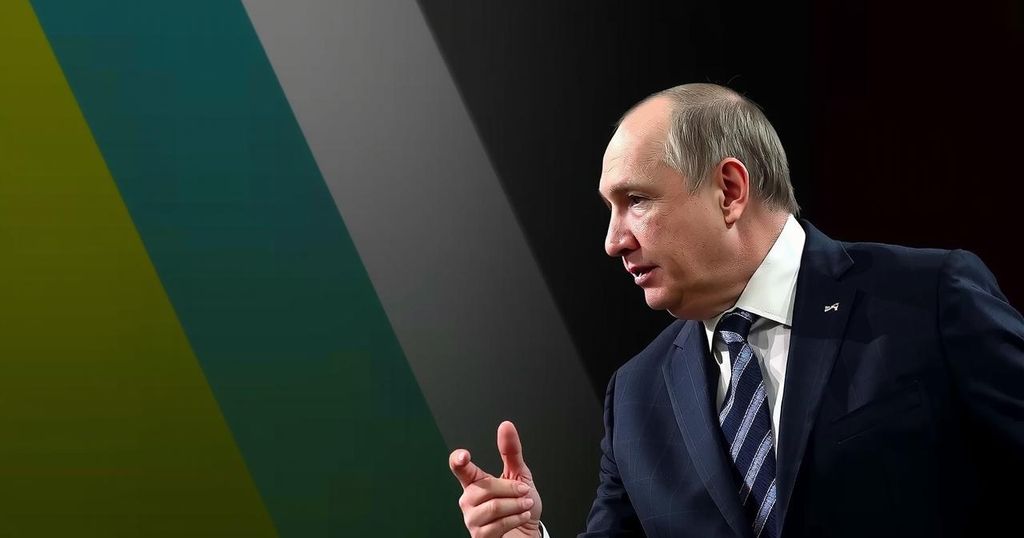As Russia focuses on Ukraine, its support for Assad in Syria wavers. Following the rapid capture of Aleppo by rebels, Moscow’s muted response signals concerns over its diminishing influence and resources. Iran’s role becomes crucial in maintaining Assad’s regime amid these challenges, reflecting a shift in regional dynamics that could further complicate Russian interests.
Russia’s involvement in Syria, particularly in support of President Bashar al-Assad, has come under scrutiny due to its renewed focus on the conflict in Ukraine. Despite the precarious situation for Russian assets in Syria, particularly following the rebels’ rapid takeover of Aleppo, Moscow’s response has been notably subdued. The partnership with Iran and Hezbollah, which previously proved vital in salvaging Assad’s regime, now faces significant challenges, as Russia finds itself in a less advantageous position to extend assistance. The mocking sentiment among Russians regarding the rebels’ swift capture of Aleppo underscores a growing unease with the Kremlin’s strategies and effectiveness in the Syrian arena.
Though a once-robust alliance existed, the dynamics have shifted as Russia seems to have fewer incentives and resources to support its Syrian ally amid distractions posed by the Ukraine conflict. Iran’s role becomes ever more critical as it bears the responsibility of supporting Assad during a time when Russia is seemingly preoccupied with its own geopolitical challenges.
The situation in Syria has remained volatile since the onset of civil conflict over a decade ago. President Bashar al-Assad’s regime has heavily relied on support from Russia and Iran to maintain power and suppress various rebel factions. Russia’s military intervention in 2015 aimed to bolster Assad’s administration, but with its recent military engagements in Ukraine, the Kremlin faces resource constraints. This two-pronged geopolitical conflict places greater importance on Iran’s role as a key ally in sustaining the Assad regime as the focus of Russian efforts diminishes. Mistrust and criticism of the strategies employed by Moscow are growing within the Russian populace, highlighting the pressures facing Russian leaders from both domestic and international fronts.
In conclusion, as Russia grapples with the repercussions of its ongoing conflict in Ukraine, its involvement in Syria becomes increasingly complicated. The once-solid partnership with Iran and Hezbollah is now essential for the survival of Assad’s regime, yet Russia’s diminished capacity to offer support raises questions about the future of their collective efforts. The quick victories of Syrian rebels highlight the Kremlin’s challenges and provoke skepticism regarding the efficacy of its strategies in the region.
Original Source: www.haaretz.com






